Once, I read to dream: to imagine adventures I wanted to have and lives I wished I could have led, to envision the kind of person I wanted to become, to fill my mind with the kinds of words I wanted to claim as mine. Now, I read to know I am not alone.
I used to hate sad endings. I actively undermined them in my mind, inventing alternate happy endings and rehearsing them until I felt better. The inexorable logic of the tragedy I had just read would still haunt me, but I satisfied myself that my ending was better—was, in fact, the ending that should have been written. Estella should marry Pip. Leslie must not drown crossing the creek to Terabithia. Juliet must wake up in time. Those were the right endings.
And so they are—but the problem is that the universe is all wrong, and those endings reflect the real state of things in a world where people disappoint us, and children die, and time runs out. They don’t reflect the only truths of life. But they hold the mirror up to the ugly features that we don’t want to see when our own hearts are happy, and that we must contemplate when they are broken.
For a while, after the bottom fell out of my world, I could not read at all. There was too much space in reading; too much silence in which the horror of what had happened to me could start screaming in my ears. I drowned it out with TV shows, episode after episode, until one day I felt enough strength to pick up my dog-eared college copy of Hamlet. “Oh God,” he gasped, “How weary, stale, flat and unprofitable seem to me all the uses of this world.” And I felt a shock of gratitude: someone understands.
I kept reading, slowly. They weren’t all sad books; but they struck tones that resonated with the complexity of life, as I think all the best books do. I didn’t read all the books I planned to read last year, but the ones I read are dear to me. They were companions I could sit with in the darkest hours of my life. Of the full list, here are my eight favorites, in no particular order:
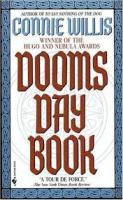
Doomsday Book by Connie Willis
This time-travel novel moved me profoundly. Willis’ depiction of the Black Death is unsparing. But from that gruesome accuracy she draws touching insights about courage in the face of suffering, compassion that looks past statistics to find real people, and the ache of unanswered prayers for relief and rescue. I have been reminded in the last year of how much pain our grandparents and great-grandparents and distant ancestors endured. Comfortable societies and modern medicine can make us lose sight of the fact that we are mortal, and the world is a hard place. But past generations could not so easily forget.
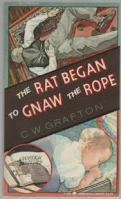
The Rat Began to Gnaw the Rope by C.W. Grafton
There’s nothing particularly deep or thought-provoking about this one. It’s just a witty mystery told in hilariously hard-boiled style by an ordinary lawyer who stumbles into amateur sleuthing. I thoroughly enjoyed it.
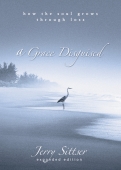
A Grace Disguised by Jerry Sittser
I have tried a number of books on sorrow and suffering in the last few years; this is one of the few that I didn’t want to throw at the wall. It was recommended and given to me by a dear friend who has suffered her own deep losses, and reading it felt like an ongoing gift. Sittser describes what grief is really like; if you know, or want to know, I highly recommend reading this.
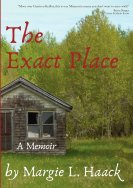
The Exact Place by Margie Haack
This memoir is touching, beautifully evocative, often funny, sometimes heart-rending, and deeply wise. The interlaced stories are rooted in Haack’s childhood landscape and family, lovingly but also objectively rendered. I loved the writing; sadly, the book suffers from very poor copy-editing which enraged this former English teacher because the writing deserved much better. I persevered in spite of it; if you don’t have a habit of reading books with red pen in hand, you probably won’t be bothered by it! I hope this book is more carefully edited and reissued, because it deserves a wide readership.
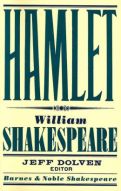 Hamlet by William Shakespeare
Hamlet by William Shakespeare
I had read Hamlet at least three or four times before, and it might as well have been in the air and water in my childhood home; my English-professor dad taught it every year and probably quoted from it even more than from Pride and Prejudice. Though I don’t have it memorized, its cadences are almost as familiar to me as breath. But last year, for the first time, I felt that I was reading Hamlet from the inside: instead of looking on askance at his raging, I looked in his eyes and ached with his words, and I knew exactly what he meant.
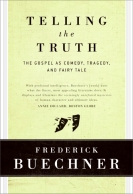
Telling the Truth: the Gospel as Tragedy, Comedy and Fairy Tale by Frederick Buechner
This is another re-read, and another book that meant much more to me the second time around, about 10 years after I first read it. I finished re-reading it shortly before my world collapsed, but it stayed with me in that darkness, a thin echo—leaving a trail of hope that there was some conception of Christianity that could still make sense even in a shattered life.
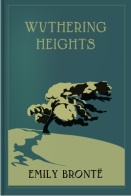
Wuthering Heights by Charlotte Bronte
I somehow avoided Wuthering Heights until last year; I didn’t expect to like it. I am much more a Jane Austen kind of girl; I like my heroines collected and thoughtful, not rain-soaked and desperate. To my surprise, I loved this novel. I found it eerie and haunting and sad, but also satisfying and hopeful. I’m sorry I put it off so long.
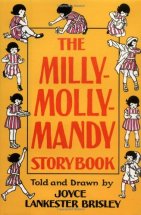
For children: The Milly-Molly-Mandy Storybook by Joyce Lankester Brisley
This is cheating a bit, because we aren’t quite finished with it. But I’m afraid I won’t remember its loveliness by the time I get around to a best-of-2014 list. This was my favorite discovery in children’s books last year. I had never heard of the Milly-Molly-Mandy books, but they are sweet and simple and very pleasantly English, and my three little listeners adore them. Not much happens in the stories, and I thought my audience might be bored, but they listen raptly. The stories seem to be pitched just exactly right. There are no grand feats or adventures—just the quiet ones of everyday life in a small village in another era: running a footrace with friends, making sandwiches, going fishing, re-thatching a roof. And fortunately for me, the chapters are just the right length to read aloud while little people are eating their lunches!

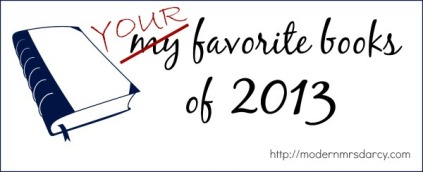
Wuthering Heights is one of my all-time favorites. I think I first read it in high school. I was surprised how much I liked it as I didn’t tend to gravitate toward sad at the time. Its been years since I’ve read it, but now I want to re-read it.
Your blog posts are always a highlight for me. Thanks for grieving authentically.
with much respect….
The Sittser and Buechner are catching my eye because I’ve gotten so much out of their past works. They’re so good but so hard to read at times, as you say.
Confession: I’ve never read Wuthering Heights. But I will–maybe in 2014?
Thanks for sharing your favorites!